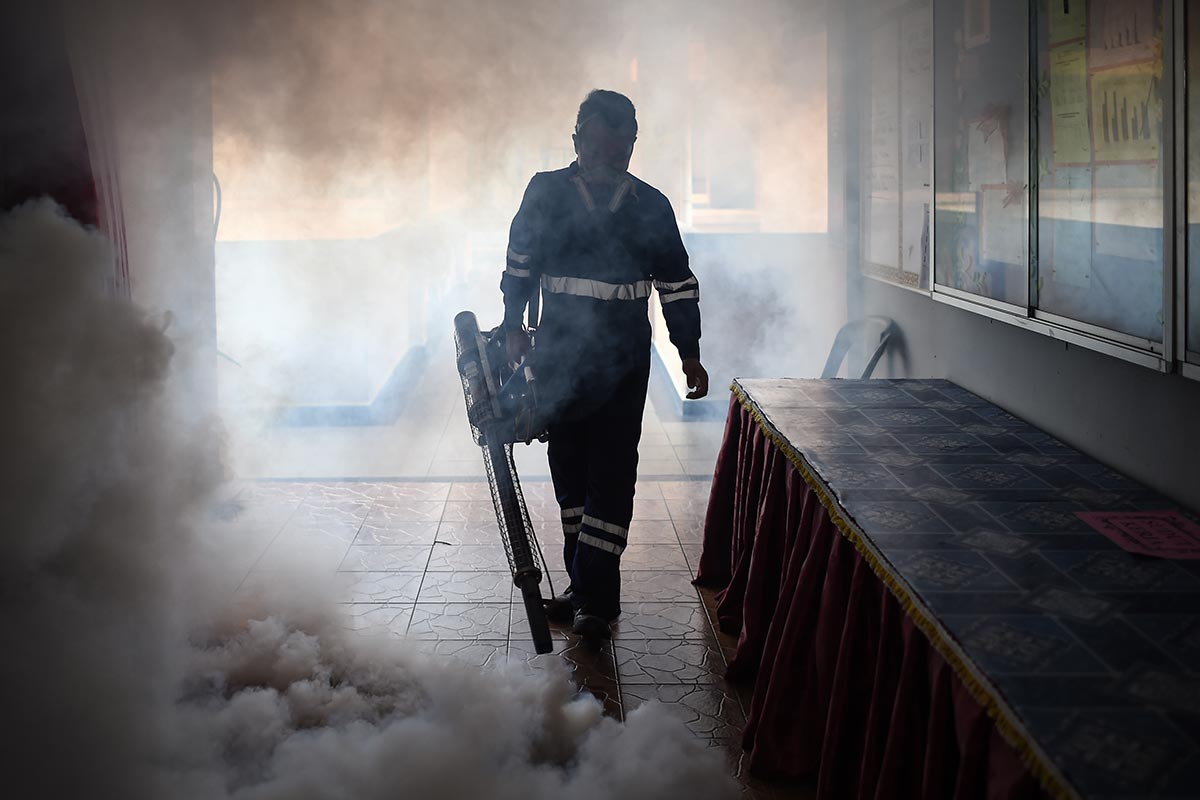The war against mosquito-borne diseases has found a new ally in artificial intelligence (AI). An ambitious project by Google’s sister company, Verily, plans to literally “debug” the problem. Its Debug project aims to reduce Aedes aegypti mosquito populations drastically and thereby the incidence of diseases like dengue, Zika, yellow fever and chikungunya.
Most of these diseases have no effective treatments or vaccines. The sufferers have to fight off the infection on their own, with treatment limited to managing the fever and other symptoms. Fatalities are one of the possible unfortunate outcomes.
Traditional methods have proven limited in their effectiveness as outbreaks of mosquito-borne diseases continue to occur in the region. These methods include getting rid of containers of standing water and fogging periodically with chemicals which are potentially toxic to humans.
Wolbachia bacteria
Scientists have discovered that a naturally-occurring bacteria called Wolbachia has some useful properties. This parasitic bacterium is found in 60 percent of all insect species but not in most mosquitoes.
Wolbachia is found to inhibit flaviviruses and alphaviruses, responsible for causing dengue, Zika, yellow fever and chikungunya. The bacteria also have multiple viral blocking mechanisms which prevent viruses from mutating into a resistant form.
Although some mosquitoes naturally have Wolbachia, their numbers are too small to affect the overall population. Due to cytoplasmic incompatibility, the eggs of wild female mosquitoes and male Wolbachia-mosquitoes will not hatch. Only female Wolbachia-mosquitoes can produce viable eggs regardless of the males they mate with. The bacteria are passed down to their offspring.
 Source: Various sources
Source: Various sources
Malaysia’s Institute for Medical Research (IMR) started conducting trials in 2016, using Aedes aegypti and Aedes albopictus. It is the first to use Wolbachia on two Aedes species.
The World Mosquito Program (WMP), formerly known as Eliminate Dengue, concurrently runs trials with Wolbachia-carrying mosquitoes. Like Malaysia’s IMR, it releases both male and female Wolbachia-mosquitoes into the wild to replace the native mosquito population with this new strain.
WMP researchers found the population to be self-sustaining in a majority of project sites for up to seven years after release. These areas have also been free from dengue outbreaks. To date, the WMP has run projects in Australia, Brazil, Colombia, Mexico, Sri Lanka, Indonesia, Vietnam and India.
If only male Wolbachia-mosquitoes are released into the wild, the mosquito population will shrink with each generation. Another benefit: male mosquitoes do not bite as it is the female that needs to load up on blood to produce its eggs.
However, this process has to be continually re-administered which incurs ongoing costs. The number of Wolbachia-males will drop due to pesticides or natural causes. As the numbers dwindle, wild males will enter the area and repopulate.
The Sterile Insect Technique (SIT) is not new. It has been used since the 1950s to control populations of fruit flies, screwworms and codling moths. It never worked with mosquitoes as these insects are fragile and difficult to rear in large enough numbers to affect a wild population.
Singapore’s National Environment Agency (NEA) adopted SIT for its trials. It conducted a field study in October 2016 and is currently in the midst of a second one. In September, Verily was roped in for its Wolbachia Project.
Enlisting AI for the fight
A subsidiary of Alphabet Inc launched in 2015, Verily develops technology for life sciences and healthcare. Its Debug Project conducted two trials in Fresno, United States (US) and Innisfail in Queensland, Australia.
Verily developed automated mosquito rearing systems to produce millions of mosquitoes. However, sorting them according to gender was a slow and manual process. It then developed new technologies, combining sensors, AI algorithms and engineering to quickly and accurately separate males from females.
AI is also used to monitor and analyse the mosquito population size in areas before, during and after Wolbachia-males are released. New sensors, traps and software are being developed to determine areas that need treatment and reapplication.
“One of the unique challenges of deploying SIT in Singapore is effectively distributing male mosquitoes across the many high-rise apartment complexes,” said Yanni Yoong, Verily’s program manager.
Aedes aegypti breed in planters, vases and other containers in hallways and homes within multi-storeyed buildings. “We designed a new automated release system contained within a 1.3 metre by one metre cart, and light enough to be pushed by an individual,” she said.
If proven effective, the technology may next target mosquito species responsible for other diseases such as malaria and the West Nile disease.
Related articles:
